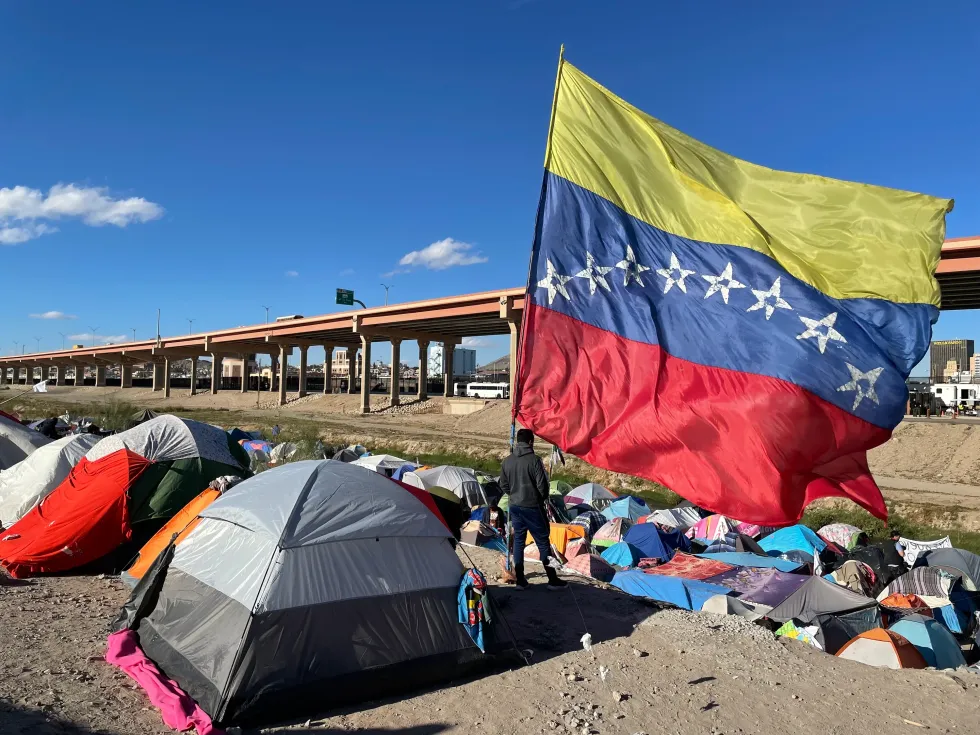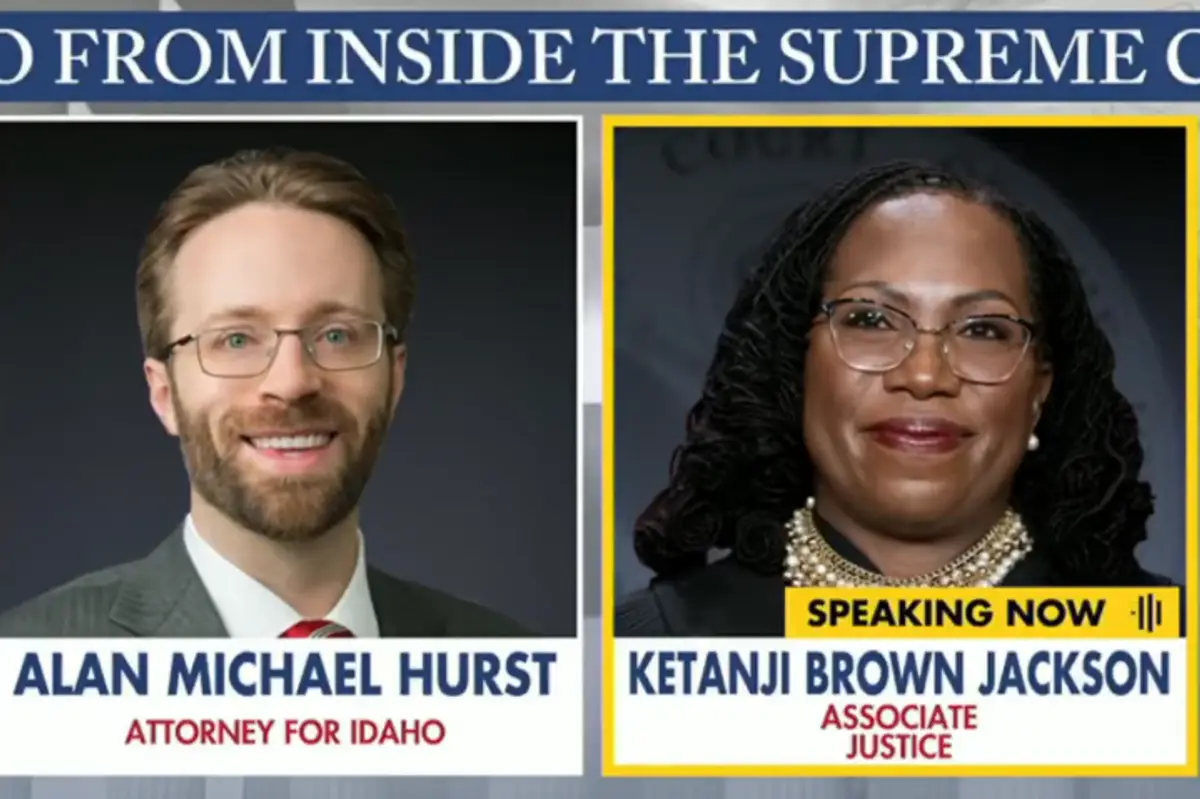
×
Please verify
Each day we overwhelm your brains with the content you've come to love from the Louder with Crowder Dot Com website.
But Facebook is...you know, Facebook. Their algorithm hides our ranting and raving as best it can. The best way to stick it to Zuckerface?
Sign up for the LWC News Blast! Get your favorite right-wing commentary delivered directly to your inbox!
PoliticsJuly 15, 2025
To Properly End Birthright Citizenship Abuse, We Need Congress to Pass a Law
Watch Louder with Crowder every weekday at 11:00 AM Eastern, only on Rumble Premium!
I don’t think there’s any way around it. While I applaud Trump’s efforts to end the madness of birthright citizenship for anchor babies and birth tourism, executive orders alone will not cut it. If we want a real solution to the abuse of birthright citizenship Congress needs to pass a law.
Thankfully, Congress has the constitutional authority to end birthright citizenship for anchor babies (children born to illegal immigrants) and birth tourists (foreign nationals who enter the U.S. solely to secure citizenship for their newborns) through targeted legislation. Currently there is a bill introduced in Congress to do just that (HR569 - Birthright Citizenship Act of 2025), but don't get your hopes up. This isn’t the first such bill of its kind, and frankly it’s Congress’ unwillingness to act that allowed this problem to fester for decades, but that’s a topic for another day.
I see two big benefits of Congress passing a law. A law would prevent a future president from reopening the door to birthright citizenship abuse with a simple executive order. After all, if something was done by executive order it can generally be undone by executive order. A law would also make it much harder for activist judges (like one of hundreds of lower court federal judges) to legislate this issue from the bench.
Birthright citizenship is found in the 14th Amendment which states, in part, “All persons born or naturalized in the United States, and subject to the jurisdiction thereof, are citizens of the United States and of the State wherein they reside.” It was originally intended to ensure citizenship was conferred to the children of freed slaves as part of the Reconstruction Amendments following the Civil War. That much is uncontested. However, its application to anchor babies and birth tourists is once again ripe for debate on the heels of Trump’s second term and his Jan 20, 2025 executive order titled, “Protecting The Meaning And Value Of American Citizenship.”
At the end of the day, it’s hard to argue that the 14th Amendment’s drafters intended to grant automatic citizenship to children of illegal immigrants or transient visitors exploiting U.S. soil. At the time of the 14th Amendment’s drafting in 1866, illegal immigration was not a significant issue, unlike today’s crisis of NGO-funded unchecked border crossings and organized birth tourism. Back then the drafters of the 14th Amendment did not know today’s illegal immigrants can expect taxpayer funded public education, access to healthcare, food support, and this list goes on. In fact, it’s clear that the simple existence of the clause “subject to the jurisdiction thereof” necessitates that the founders wanted some category of people to be excluded from birthright citizenship, or to put it another way, the existence of the jurisdiction clause proves birthright citizenship was not meant to be conveyed to pretty much everybody (like it is now). By passing a law clarifying what the clause “subject to the jurisdiction thereof” really means, Congress can address this modern challenge in a manner consistent with the Constitution and simultaneously prevent a future president from reinstating unfettered birthright citizenship through their own executive order.
Prior to its ratification, the 1868 debates over the 14th Amendment reveal that its drafters did not envision blanket citizenship for all born on U.S. soil, particularly not for those whose parents owe allegiance to foreign nations or enter unlawfully. Senator Lyman Trumbull, a key architect of the Amendment, explained, “It cannot be said of any Indian who owes allegiance, partial allegiance if you please, to some other Government that his is ‘subject to the jurisdiction of the United States.’” Trumbull’s words clarify that “subject to the jurisdiction thereof” was meant to exclude those with divided or foreign allegiances, such as children of diplomats or sovereign Native American tribes. Makes you wonder - should we assume that a foreign citizen of another country who entered our country illegally is loyal to our country, or to their own? I suggest the images of foreigners invading our country while flying the flags of the countries they’re “fleeing” provides a clear answer.

Senator Jacob Howard, another drafter of the 14th Amendment, appeared to take a broader approach. Howard stated that the jurisdiction clause “will not, in my opinion, include persons born in the United States who are foreigners, aliens, who belong to the families of ambassadors or foreign ministers accredited to the Government of the United States, but will include every other human being born within the jurisdiction of the United States.” While Howard’s view appears broader, it still excludes those tied to foreign governments, suggesting a narrower scope than today’s expansive interpretation. Once again, when a citizen of a foreign country makes first contact with our country by breaking the law (illegally crossing the border is a misdemeanor - 8 U.S. Code § 1325), it’s safe to say their loyalty to our country is questionable.

The Supreme Court has chimed in on this as well. Most notably, the Left’s favorite go-to case on this issue is the 1898 SCOTUS decision in United States v. Wong Kim Ark, which established jus soli (right of the soil) for children born to… wait for it… legal permanent residents. Yes, that’s right, the most prominent SCOTUS case on the issue is silent as to the children of illegal immigrants or birth tourists. Again, at the time of the 14th Amendment’s drafting and SCOTUS’ later interpretation, illegal immigration as we know it today was virtually nonexistent. The concept of “anchor babies” or “birth tourism” would have been foreign to the drafters, who could not have foreseen the modern exploitation of U.S. citizenship by those who flout immigration laws - but the drafters did have the wisdom to add the qualifier “subject to the jurisdiction thereof” to give us a tool to address these unforeseen issues. Indeed today, illegal immigration strains national resources (to the tune of $150B/yr under Biden), undermines sovereignty, and fuels a system where birthright citizenship incentivizes unlawful entry. It is therefore rational and prudent for Congress to conclude that parents who enter illegally or temporarily for childbirth are not fully “subject to the jurisdiction” of the U.S., as their actions demonstrate both defiance of American law and transient presence rather than genuine allegiance.
So how would a Congressional law work? The Constitution grants Congress broad authority to regulate naturalization (Article I, Section 8), and courts have historically deferred to Congress on immigration policy. A statute clarifying that “subject to the jurisdiction” requires parents to be lawful residents or citizens would align with the Amendment’s original intent to limit citizenship to those with meaningful ties to the U.S. Such a law would not require a constitutional amendment, as it would interpret rather than repeal the 14th Amendment’s text. While such a law would most certainly end up before the courts, the judiciary often defers to Congress and the President when they act in unison on matters of national policy, especially when supported by compelling interests like securing borders, protecting national sovereignty, and deterring immigration fraud.
That’s not to say that such a law is a layup. Any law touching a constitutional right must meet a very high standard to be constitutional. A law interpreting the 14th Amendment would require Congress to: 1. Demonstrate that it needs to pass this law to satisfy a compelling government interest, and 2. That the law is written as narrowly as possible to address that compelling government interest. Despite this high standard, the facts are on Congress’ side and they have been for decades. Firstly, the crisis of illegal immigration—estimated to cost taxpayers hundreds of billions annually, strain public services and create a national security threat—constitutes a compelling interest. Birth tourism, often facilitated by NGOs, undermines the integrity of U.S. citizenship. Secondly, a law excluding children of illegal immigrants and birth tourists from automatic citizenship would be narrowly tailored, preserving birthright citizenship for children of citizens and legal residents while addressing specific abuses. Done this way, it’s likely the Supreme Court would view this as a political question best left to Congress, especially if the legislation carefully interprets the jurisdiction clause rather than contradicting the Constitution.
SCOTUS could take this issue up directly in the next coming session and my gut is SCOTUS will find Trump’s executive order alone is unconstitutional, as they would look at it as the President trying to unilaterally alter the 14th Amendment’s application (not saying I agree with this, it's just my prediction). However, if the Legislative and Executive branches (Congress and the President) unite to pass a law clarifying what “subject to the jurisdiction thereof” means, the Judicial Branch’s (SCOTUS and lower federal courts) ability to overturn it would be limited. Generally speaking, the courts respect the Legislative and Executive Branches’ authority over immigration and naturalization, particularly when their actions reflect a unified stance. Historical deference to Congress on such matters, combined with the ambiguity in the Amendment’s original debates means Congress can constitutionally limit birthright citizenship to exclude anchor babies and birth tourists (much in the same way it can constitutionally limit our most sacred rights, like free speech).
Much to the Trump admin’s credit, it seems they are throwing everything possible at this issue (and other issues) from a legal standpoint. But in order to bring sanity back to the birthright citizenship issue, Congress has to actually do some work. To sum it up, the 14th Amendment’s drafters, facing no equivalent to today’s illegal immigration crisis, never intended to reward unlawful entry or transient presence with citizenship. By passing a law grounded in the Amendment’s original intent and supported by compelling national interests, Congress can restore order to our immigration system while respecting constitutional principles. Such a move would affirm the rule of law, protect American sovereignty, and ensure citizenship reflects genuine allegiance to the United States, while preventing a future potential Democrat or RINO President from restoring unregulated birthright citizenship abuse with an executive order of their own. This issue makes the 2026 midterms all the more important if we ever hope to correct this issue in our lifetimes.
- YouTube www.youtube.com
Latest





